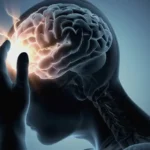Attention-deficit/hyperactivity disorder (ADHD) affects millions worldwide, involving persistent behavioral patterns that interfere with daily functioning. While its presentation varies, core symptoms often begin in childhood and continue into adulthood. Understanding these key signs helps recognize when professional support, such as ADHD therapy, might be beneficial.
Difficulty Maintaining Focus
If you have ADHD, you might find it tough to stay focused on tasks, conversations, or activities. This isn’t just about being easily distracted; it can significantly impact your productivity and the level of attention you pay to details. You might start a project with excitement, only to lose interest before it’s done, or miss parts of an assignment. If these challenges are significantly impacting your daily life, exploring options like ADHD Therapy can provide strategies and support to help you manage focus difficulties more effectively.
These attention challenges often show up in both work and personal settings. At work, it may mean struggling to complete lengthy reports or missing key details in meetings. In personal relationships, you may find it challenging to actively listen during conversations or forget commitments, which often leads to frustration for both you and others.
To manage these difficulties, breaking large tasks into smaller, manageable steps helps improve focus and completion. Setting time limits, taking regular breaks, and minimizing distractions in your workspace are effective strategies for enhancing productivity. Tools like timers, calendars, and reminder apps provide structure, while therapy using cognitive-behavioral techniques can establish personalized approaches to improve attention.
Hyperactivity and Restlessness
Hyperactivity in ADHD isn’t just about having high energy; it can also be an internal restlessness, even when you appear calm. You might have a constant need to be “on the go” or experience an inner tension that makes it hard to relax. This typically manifests as fidgeting, difficulty staying seated in meetings, or frequently changing your position.
To manage this, regular physical exercise can be an excellent outlet for excess energy, and even short walks during the workday can help. You might also find fidget tools or stress balls helpful in providing a discreet way to move during quiet activities. Creating a structured routine helps you channel this energy productively, and a therapist can help you find personalized strategies that work for you.
Impulsivity in Decision-Making
Impulsivity in ADHD often means acting without fully thinking about the consequences or interrupting others during conversation. This often impacts various aspects of your life, including financial decisions, relationships, and work performance. You might notice yourself making unplanned purchases, speaking before you’ve thought about your words, or frequently changing your plans. While spontaneity can be a positive trait, ADHD-related impulsivity often leads to regret or other adverse outcomes.
See if ADHD Therapy Can Help
If these symptoms are making daily life difficult, it’s a good idea to talk to a mental health professional. ADHD therapy offers proven strategies designed for your unique challenges, helping you develop effective coping mechanisms. They can help you understand your ADHD better and create a plan tailored just for you. A professional evaluation will clarify your diagnosis and guide you toward personalized treatment.







